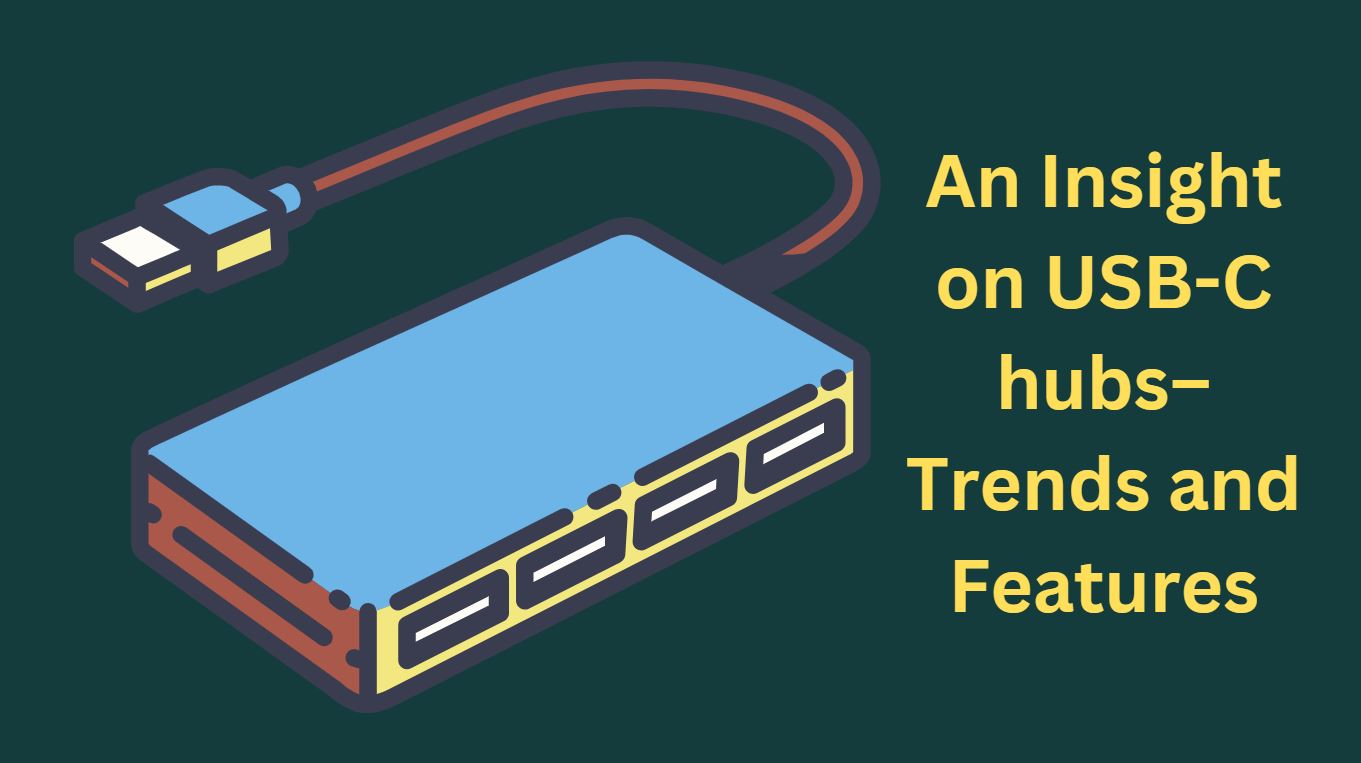An Insight on USB-C hubs–Trends and Features

Since the evolution of computers, there have always been throat heating discussions and gymnastics on the data transfer speed. There have been many types of ports that have evolved and terminated, but one major port that has proved to be a long run horse is USB, i.e., Universal serial bus. The max data transfer speed achieved by its latest version 3.1 Gen 2 is 20 Gbps, which is much needed in today’s space. But, usually, these hubs of USB-C offer USB 3.0. This device comes in use when you have multiple devices to be connected at the same time and still maintain a decent data and power transmission.
Features and trends
Recently, many manufacturers of peripheral devices have come up with USB Type-C hubs that are used to connect and control multiple devices via a single hub. There have been many companies manufacturing USB-C Ethernet and HDMI compatible hubs such as Satechi, HooToo, Aukey, etc.
Typically, a Type-C USB hub contains a collection of ports, i.e., it contains 2 or 3 USB 3.1 Type A ports, HDMI port, SD card slot, Micro SD card slot, Ethernet RJ-45 port and passes through charging port.
So, as you see, you can connect multiple devices to it, and it will provide a good rate of data transfer in minimum time. It also supports 4K HDMI output which means you have more pixels and you can transfer 4K movies in no time. With this hub, you can not only transfer your 4K movie, just plug in your TV to the hub and laptop and be ready for an amazing new experience of 4K movie watching.
Also, with the help of daisy chaining method, which is allowed by the hub, you can enjoy any screen via your laptop on your TV, relaxing on your sofa.
It also covers a standard RJ-45 connector port, so that if you have a LAN cable and would like to use it to have better and faster internet, you can always plug in the LAN cable to the hub and it will do the rest for you as a router. This is important port since, nowadays, there are not many laptops that come with this port, and thus many people get deprived of LAN support and have had to rely on Wi-Fi only, even at home when you have the LAN connection.
Usually, USB-C hub with Ethernet and HDMI support pass-through charging, which means you can charge your hub from the power source and use it at the same time. This ensures that when you are in the mobile mode, i.e. you are moving, you can always have your device charged, and all you need to do is to make connections.
Conclusion
Usually, it is handier for MacBook users, but since it uses USB-c cable, it can be used at various other applications. USB-C hubs are going great in the market, although there has been an untold added competition with Thunderbolt 3, which again offers similar properties and functionalities.
Discover more from Newskart
Subscribe to get the latest posts sent to your email.


Comments are closed.